Brokers
The Broker: How Elana Kemp Turns Values into Value
September 26, 2018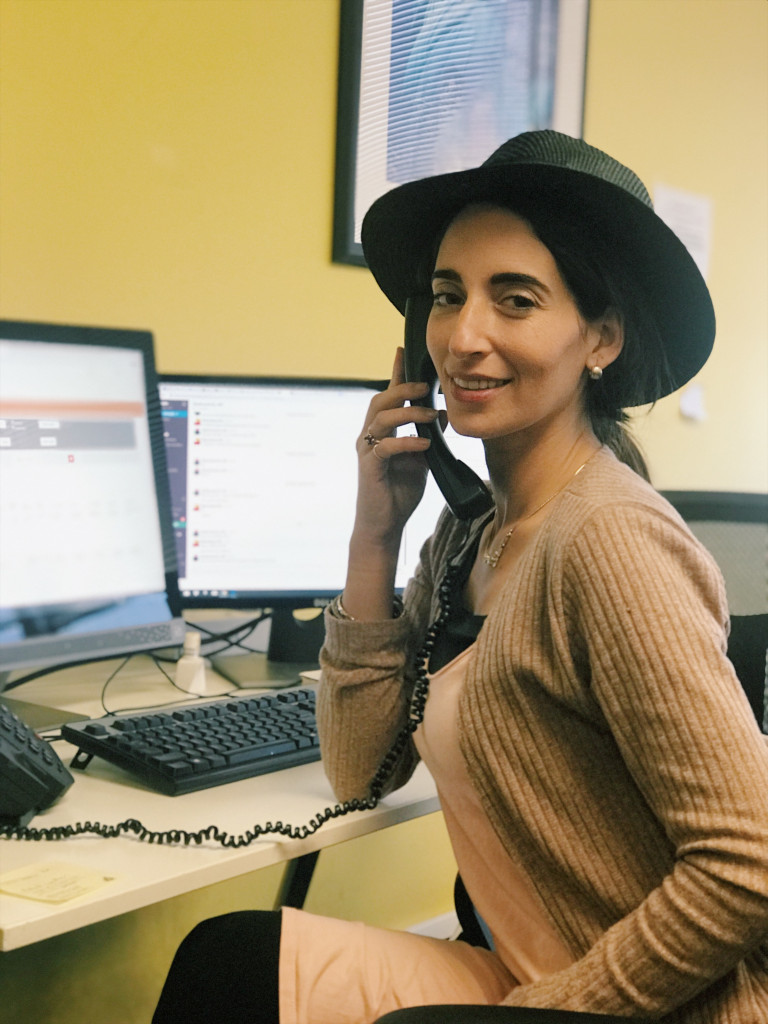 Title: Broker at Fundomate, a commercial finance brokerage in Los Angeles.
Title: Broker at Fundomate, a commercial finance brokerage in Los Angeles.
Background in business:
I started four years ago when I was living in Israel and I was working American hours. It was tough because I have four kids…A [non business] opportunity brought me to LA where my dad lives and where I’m from originally. So I jumped on that and continued doing brokerage part-time as a one man show for about a year. I met some people in the industry here in LA and started working with them. From there I went to Fundomate, then somewhere else. And then I came back to Fundomate.
What’s the difference between working for yourself and for a brokerage company?
Generating leads is so challenging to do on your own. If it wasn’t for that, I’d be a one man show all day long. I have to admit, though, that after a year, I did miss the infrastructure of working with people and the energy.
Why is it so hard to find leads?
It’s hard to find an honest lead generator. They promise you a lot, but at the end of the day, you don’t get much. I tried many different avenues [when I was working alone.] And I had one lead guy who I was really happy with and then he ended up in the hospital. So there went that. But otherwise, most of them didn’t perform the way they promised.
What’s your morning like with four kids?
Well, I’m not the first in the office. I work for someone who’s very understanding of my situation. I have a kind of cart blanche in terms of my hours. Of course, though, I’m awake at 6 / 6:30, and the second I’m awake, I’m on my phone, checking my emails. So [while] I’m not physically in the office, the second I’m awake, my workday starts. So I don’t make it to the office until 8:15 / 8:30.
Is there any ritual you have to close a deal?
If I have a big deal pending, like a $250,000 deal, I definitely take the time to envision the funding email and kind of manifest that. I definitely believe in the power of energy. If I don’t make a deal, I try not to take it home with me. I believe it’s meant to be and I’ll get the next one. I do believe there’s enough out there for everyone.
I recently read a fun fact – that elephants eat 400 lbs of food a day. It blew me away. And I thought “if an elephant can find 400 lbs of food to eat a day, then I can find enough deals to fund and support my family.”
Largest deal funded:
$325,000. Commission was $26,000.
Her style:
I get really close to my merchants. Some people think I get too close to them. Everybody has a different [style]. Sometimes [getting very close to a merchant] will make me win a deal. Sometimes it will make me lose a deal. Everybody has a different vibe that they feel comfortable with.
I get close to people very quickly. It’s just who I am. And in my opinion it works to my advantage because I have merchants that renew with me multiple times a year. And I know, no matter how many calls they get [from other brokers], they’re going to turn to me. I know that they trust me. I’ve had one merchant come over for dinner at my house. I have some merchants I check in with every few months and sometimes we don’t talk about money at all. We just talk about life.
On honesty:
I try to imagine that the merchant is like my dad. I want to treat them properly. And I believe in karma. I also say that if I get a deal funded but it was not 100% honestly done, then I like don’t want to feed my kids with that money.
Advice for brokers:
Don’t give up on your values for a deal. Values are more valuable than one deal funded. You can always fund another deal…a [reputation] can be broken down in like 2 minutes.
The Broker: How Daniel Dias Evolved and Found Success
September 19, 2018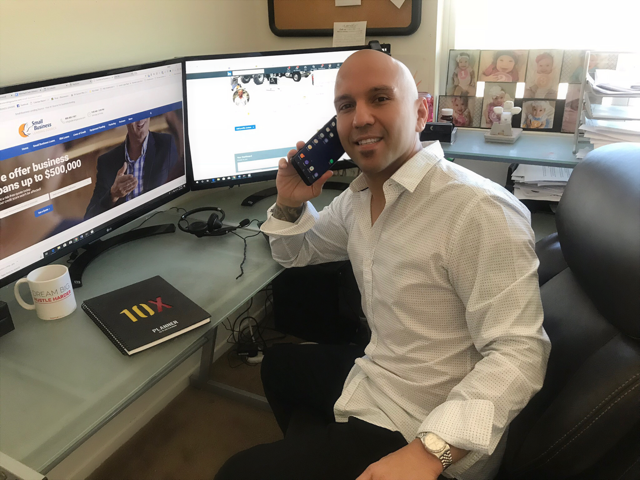 Title: CEO of Small Business Lending Source. A one-man shop with one full-time assistant and another assistant in San Diego, California.
Title: CEO of Small Business Lending Source. A one-man shop with one full-time assistant and another assistant in San Diego, California.
Years in the industry: 5
How he got into the industry:
I’ve always been an entrepreneur and I had a business that was going downhill. [In 2013,] I had a friend that was doing business loans and he told me that he had made $26,000 the month before, so I was like “What are you doing that’s bringing in so much money working for someone else?” And he said business loans. So I was like, “I need to check this out.” So I went and worked for the company he was working at for about 6 months. I learned how to sell the products and then went off and did my own thing. Now we do equipment leasing, business credit lines, SBA Express Loans and other products.
What were some of the challenges of starting your own business?
Initially, the biggest challenge was that I had only done merchant cash advance and not everyone is a good fit for merchant cash advance. So I had to learn about the other products, [which] is one thing that has helped me grow the business. Every year, I’ve seen about a 30 to 40% increase in revenue.
Also, marketing has changed a lot. I was kind of old school. I’d pick up the phone, start dialing, do direct mail. [But] since I’ve been in this business, I’ve learned a lot about internet marketing. I do a lot of marketing through Linkedin and Facebook, a lot of retargeting…I taught myself everything I needed to know about internet marketing.
His daily routine:
6/6:30 a.m. – I wake up. I make myself breakfast along with my daughter and get her ready for her daycare.
7:30 a.m. – I start work. I’m checking my emails, returning emails and calls.
9 a.m. – 12 p.m. – I’m doing outbound marketing. I dial through whatever leads came in.
1 p.m. – 3 p.m. – I try to close deals this time of the day.
3 p.m. – 5 p.m. – More marketing.
5 p.m. – 7 p.m. – I spend time with daughter.
7 p.m. – 9 p.m. – I go to the gym.
9:30 p.m. – Get back home.
10 p.m. – 12/1 a.m. – I’m working on marketing or trying to learn something new.
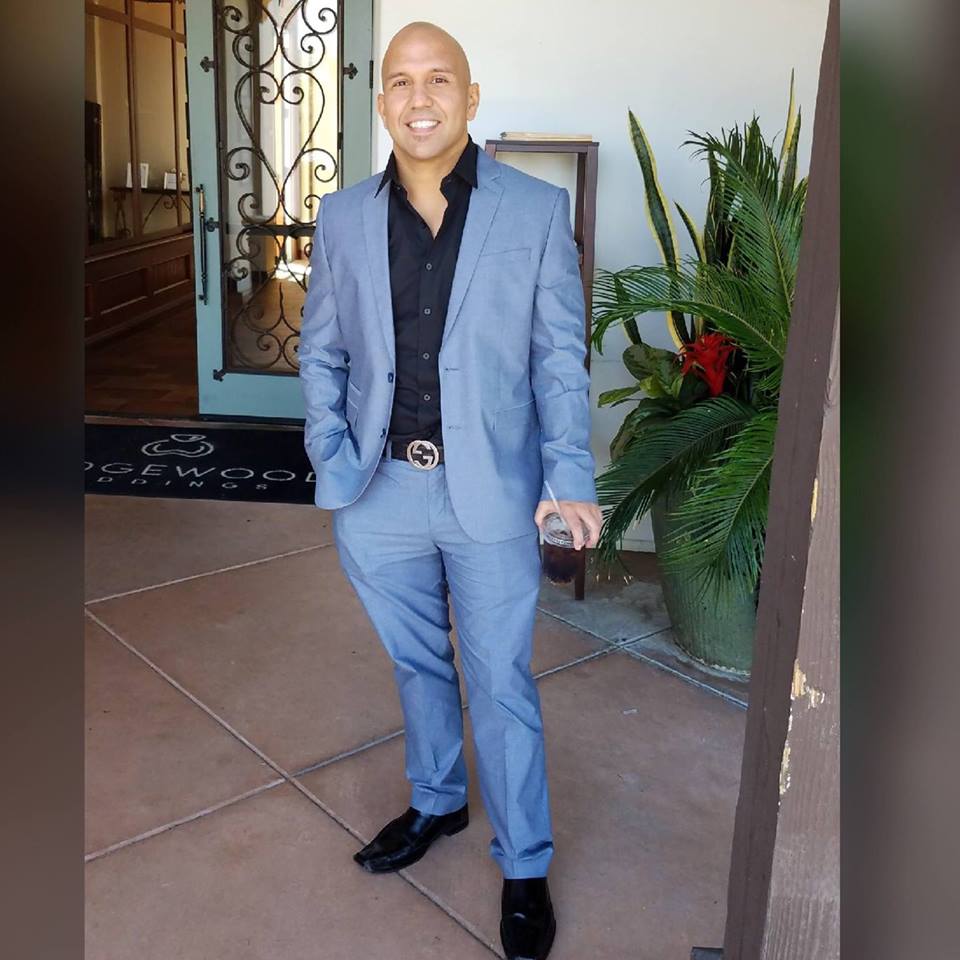 What he means by “marketing”:
What he means by “marketing”:
I do all my own posts, so I have to come up with the copywriting for LinkedIn for the next day. I have a certain strategy that I use, so I have to come up with the content for that everyday. And I’m regularly checking to to see how my strategy/posts are performing.
How his process works:
I give the client a call the first time a lead comes in. My assistant is more or less on the front end and she will follow up the 2nd, 3rd, 4th time. She’s collecting all the paperwork after that.
Then, once the offer comes in, I call the people back and then I’m closing the deals.
His monthly volume:
Last month we funded $750,000. I’m typically generating a good 300 leads a month. Of course, they’re not all qualified, but it’s a good amount.
His biggest deal:
It was an $850,000 deal and I got a $50,000 commission.
Tips for having a home office:
I have a specific area in my house where I work. It’s a loft upstairs and once I’m up there, I’m completely focused on the business. There’s no TV in there. If you’re going to work from home, you can’t have distractions. You have to be of the mindset that once I’m at my desk, there’s nothing else – no internet surfing. If you’re going to work from home, you have to have a designated space where everyone knows “If I’m in there and the door is closed, don’t bother me.”
His mindset:
Putting a plan in place and doing everything you have to do in order to get it done. There’s no procrastination. If I’m going to do something, it’s going to get done. If I don’t know how to do it, I’m going to find somebody that does or go on the internet and find the answer to my question.
Where he’ll be on Oct. 4th:
At deBanked CONNECT San Diego. He even got an Early Bird ticket!
The Broker: How Copelon Kirklin Became a Dealmaker
September 3, 2018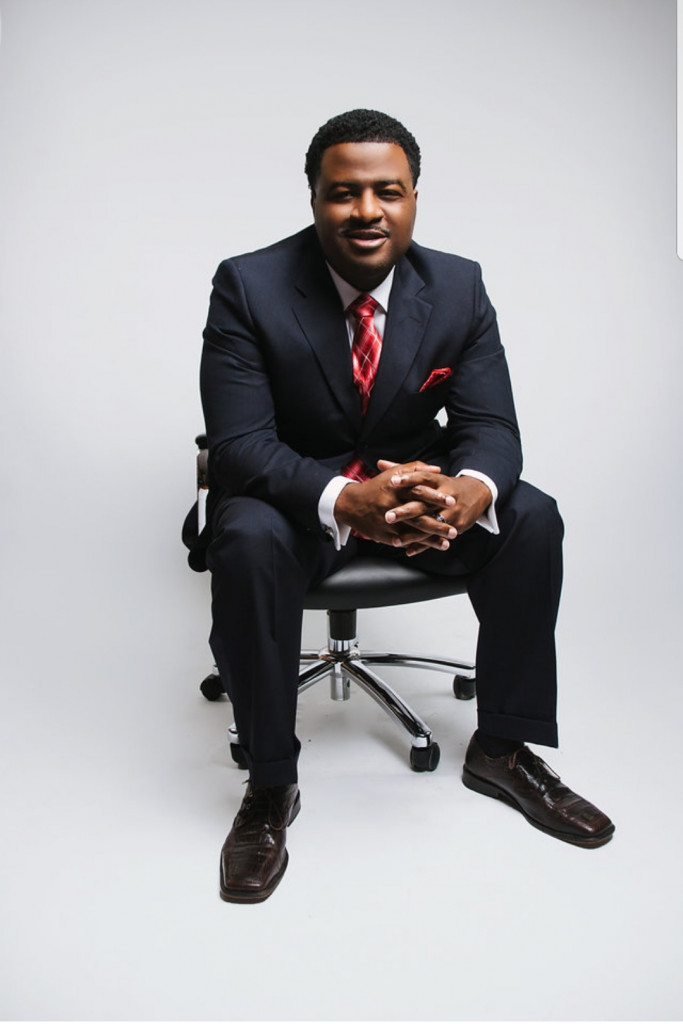 Title: President of KPC Group, one man broker shop.
Title: President of KPC Group, one man broker shop.
Location: Kenner, Louisiana. Fifteen minutes outside of New Orleans.
What’s your morning routine?
I wake up at 6. I get a quick breakfast. I check my emails and then on to phone calls.
What keeps you going throughout the day?
My gasoline is my family. They’re my coffee, my 5-hour energy. They’re my motivation because I know what I want to give them. I’ve been able to accomplish some things in this business and [be able to] provide some of things for them… So no coffee here. Just the family. That’s my fuel.
Biggest deal?
$2.5 million deal. It was an SBA loan and I had 1 point in it. So I made a $25,000 commission.
What are a few of your biggest challenges as a broker?
If I’m dealing directly with a merchant, at the beginning, the way they represent themselves on paper regarding their revenue – everything looks good. And then when the actual bank statements come through, it doesn’t match up. I mostly work with construction contractors. It’s a niche and it’s pretty simple. But it’s only simple if [merchants] don’t misrepresent their financials, if they’re telling the true story.
Also, I don’t mind working with brokers…it doesn’t matter if you’re in the deal 50-50 or you’re just passing me a deal of a friend…I pay 50% every time, because I want to foster more relationships and get more deals that way. The challenge is when the co-broker can’t let go of the client to let me deal with them. It’s when they want to be the go-between. When they want to communicate through me to the client and it just doesn’t work that way. I haven’t closed any deals when another broker tries to work that way.
 Could you tell me about your first deal?
Could you tell me about your first deal?
2014 was the first time I closed a deal in finance…and I only made $500. But I tell you, it was the best thing that happened to me because it let me know that it was possible. There was this one moment when I was really questioning “am I supposed to be doing this?” And I’ll never forget that day. I was sitting in my bed and I just had this look on my face and my wife asked me what was wrong and I told her “I don’t know if this is for me because I’ve been doing this for [a few] years and nothing’s happened yet.”
And to my surprise, she said “pick up that laptop, open it back up and you get back to work. It’s going to work out. You’re not doing this in vain.” And lo and behold, two weeks later, I closed that first deal at $500 [in commission], and the next week I closed two deals, one for $1,100 and one for $1,400. And I was just on my way from that point.
How did you learn to be a broker?
I learned from the internet. I found leads organically because I didn’t have any money for leads. LinkedIn was my best friend at the time and it’s still my go-to. It was where I learned that people are willing to do business with you without meeting you. I got hooked on it – developing my profile, adding to it, learning, making mistakes, chasing pipe dreams. [Those many months] before closing my first deal were just a lot of growing pains.
How do know when something isn’t real on LinkedIn?
It’s really about learning to do due diligence and not taking people at their word, even though you would love to. You check out their background. Do they just have a personal email address? That’s not always a killer, but it does help if they have a corporate email address if they’re telling you that they’re a lender. Learning that someone is actually a broker when they’re saying that they’re a lender. Checking Ripoff Report, seeing if [someone] has a website, learning to tighten my filter. In the beginning, you want it to be easy. You want to take people at their word. And I fell for [tricks]. But you have to do your homework.
The Broker: How Zach Ramirez Makes Deals Happen
August 17, 2018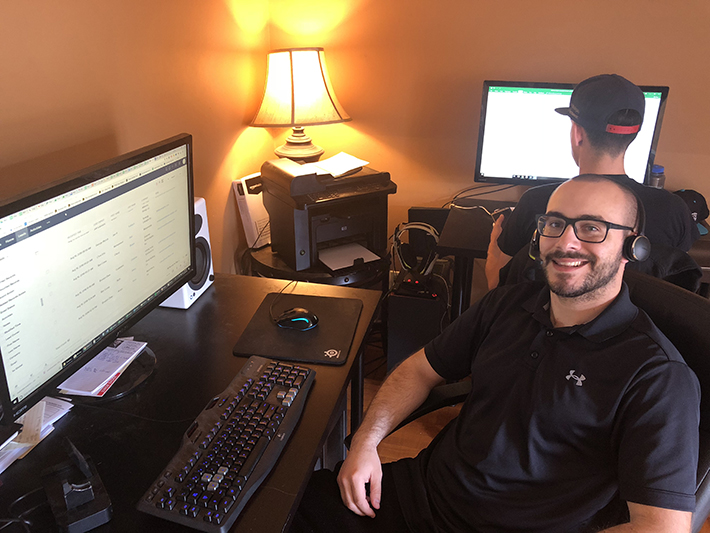 deBanked interviewed Zachary Ramirez to find out what makes a successful broker like him tick, how he does it, and what kinds of things he’s encountered along the way.
deBanked interviewed Zachary Ramirez to find out what makes a successful broker like him tick, how he does it, and what kinds of things he’s encountered along the way.
Title: Founder and Managing Director of ZR Consulting, LLC, a brokerage of 10 people in Orange County, California.
Years in the industry: 6
Age: 29
 Number of brokerage shops he’s started: Three. The first one he created failed after only about three deals, the second one, called Core Financial (that he got in early on with 2 other partners), grew to 27 brokers before it was acquired, and this one is only two months old and has already funded $1 million.
Number of brokerage shops he’s started: Three. The first one he created failed after only about three deals, the second one, called Core Financial (that he got in early on with 2 other partners), grew to 27 brokers before it was acquired, and this one is only two months old and has already funded $1 million.
His morning routine:
I get up at about 5:45.
I have my protein shake – banana, protein, coconut oil and whatever else I can find that seems healthy to me.
I get a cup of coffee.
I sit down at my desk and the first thing I do is look at all the leads that came in that night. Sometimes there’s as many as 80. Sometimes there’s as few as 20 or 25. I then distribute the leads to my sales team, so that as soon as they wake up, they have all their leads. After that, I focus on marketing and closing some of the bigger deals.
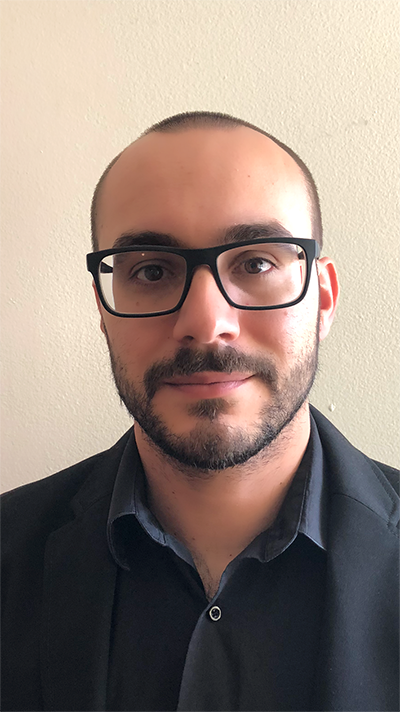 Ritual before he closes a deal:
Ritual before he closes a deal:
It’s a funny habit that makes me laugh but before I try to close a deal, I visualize myself closing the deal and I beat my chest. I walk around the office beating my chest like an ape, and it’s just hysterical. I get this big adrenaline rush right before I call the merchant. And when I call them, I’m just on fire. Whatever happens, I’m ready for it. And when I’m in that mode, I can’t lose a deal. It’s like impossible.
His first deal:
It was an auto repair shop that needed $75,000 in order to add three new bays for their repair shop. I think I funded it with OnDeck. It was a very smooth deal. My buddy brought it to me. He said the customer needs the money today. And we ended up funding it the same day. It was great.
I was 23 years old and that was the first time I had seen my business capture any revenue. Finally, after a month or two months of straight working, and not finding a single deal, I finally figured out the marketing a little bit and ended up funding that one. I remember we had 10 points in it, so we had $7,500. I was a single guy renting a room, and for me that was a good chunk of money.
What it taught him:
It helped me learn about expense management because that first broker shop I started failed. I lost everything on that shop. I only funded two or three deals and I ended up spending more money than I made. I was very humbled by this. I realized that being a broker isn’t as easy as people think.
What his best merchants have in common:
My favorite merchants understand why they qualify for what they qualify for. We have a deep rapport. I don’t just talk about business. I’ll talk about their family. I’ll talk about trends I see in their industry. I’ll help them understand their financial situation. And my best merchants are the ones that understand that I’m a source of information for them and I can provide them with valuable insights that they might not be aware of. Things that can help them. I’ll help them with marketing a lot…I say, ‘Look, if you talk to these people, they can do this marketing for you.’ And I do stuff like that because it’s increasing their revenue which helps their business. And that can help me do bigger loans for them.
 Largest deal:
Largest deal:
It was a $2 million deal. We had three points in it, so we made $60,000.
Favorite funders:
OnDeck. Also, I really like Fundworks, Quickbridge and Kalamata Capital Group. If someone doesn’t say OnDeck, then they’ve got a problem because OnDeck is amazing.
Why?
Because the consistency of their approvals, their competitive rates, the fast and seamless funding process. And especially, the online checkout. The online checkout is godly.
An ISO Brokers Main Street Deals – on Main Street
June 25, 2018 Envision a giant office filled with rows of commercial finance brokers on the phone, aggressively selling deals to faceless small town merchants. Then step into the office of Horizon Financial Group and meet brothers and business partners James and John Celifarco. The contrast could not be more striking.
Envision a giant office filled with rows of commercial finance brokers on the phone, aggressively selling deals to faceless small town merchants. Then step into the office of Horizon Financial Group and meet brothers and business partners James and John Celifarco. The contrast could not be more striking.
The most dramatic difference between their office and that of almost every other broker, or ISO, is that you enter the office from the sidewalk. There’s no lobby and no elevator. It’s just the two brothers (plus one salesperson and one assistant) working on the other side of a glass storefront window.
 The store isn’t on Madison Avenue or Rodeo Drive. It’s on a modest, roughly three-block commercial strip on Avenue S in a working class section of Brooklyn called Marine Park. There’s a deli, a pizzeria, a barbershop, a pet grooming store and a bunch of other stores that you’re likely to find on Main Street, U.S.A. In other words, Horizon Financial Group’s neighbors are the exact kind of small business owners they seek as customers. And since they opened up shop on this quaint stretch at the end of October, many of their store owner neighbors have already become customers.
The store isn’t on Madison Avenue or Rodeo Drive. It’s on a modest, roughly three-block commercial strip on Avenue S in a working class section of Brooklyn called Marine Park. There’s a deli, a pizzeria, a barbershop, a pet grooming store and a bunch of other stores that you’re likely to find on Main Street, U.S.A. In other words, Horizon Financial Group’s neighbors are the exact kind of small business owners they seek as customers. And since they opened up shop on this quaint stretch at the end of October, many of their store owner neighbors have already become customers.
“It’s a different relationship with the customer,” James said of their neighborhood clients. “You’re not on the phone. You’re face to face with these people. You’re meeting them, you’re shaking their hands, you’re getting to know them personally, which helps with the longevity of the relationship itself.”
Sitting at the glass conference table by their storefront window, James, 34, and John, 37, counted up to six clients by simply pointing out the window at other small stores across the street. Horizon Financial Group is an ISO that brokers working capital deals and does credit card processing, equipment leasing, ATM machines and commercial mortgages. (James has his New York real estate license, so he can also help local store owners buy or sell a house.) The brothers said that about 40 percent of their business is facilitating deals brought to them by other ISOs, another 40 percent comes from merchants that they find directly, and about 20 percent comes from these local customers they’ve developed from having a physical presence in the neighborhood.
“Obviously you can’t build an entire business on just these two streets,” John said, “but it’s extra business that we wouldn’t have had if we weren’t here. And when we came here, we stopped thinking ‘Who are we going to buy leads from?’ and started thinking more outside of the box.”
An example of this was their decision to approach the Brooklyn Chamber of Commerce where they are now one of the chamber’s preferred vendors, which brings them business from the entire borough.
James said they’ve made contributions to the local little league and kids football, and whenever a new store opens in the area, they introduce themselves and explain what they do. It also doesn’t hurt that they grew up in Marine Park, so they already know the town pretty well. James recognized someone on the sidewalk and ran outside to say hi. It was someone who used to be a next door neighbor. There is a truly old-fashion sense of community on Avenue S.
“I buy my pizza from [the pizza store owner] and he does his credit card processing with us,” James said. “When the dry cleaner needed equipment, we got them capital, and I actually got to see the piece of equipment I helped finance. That almost never happens.”
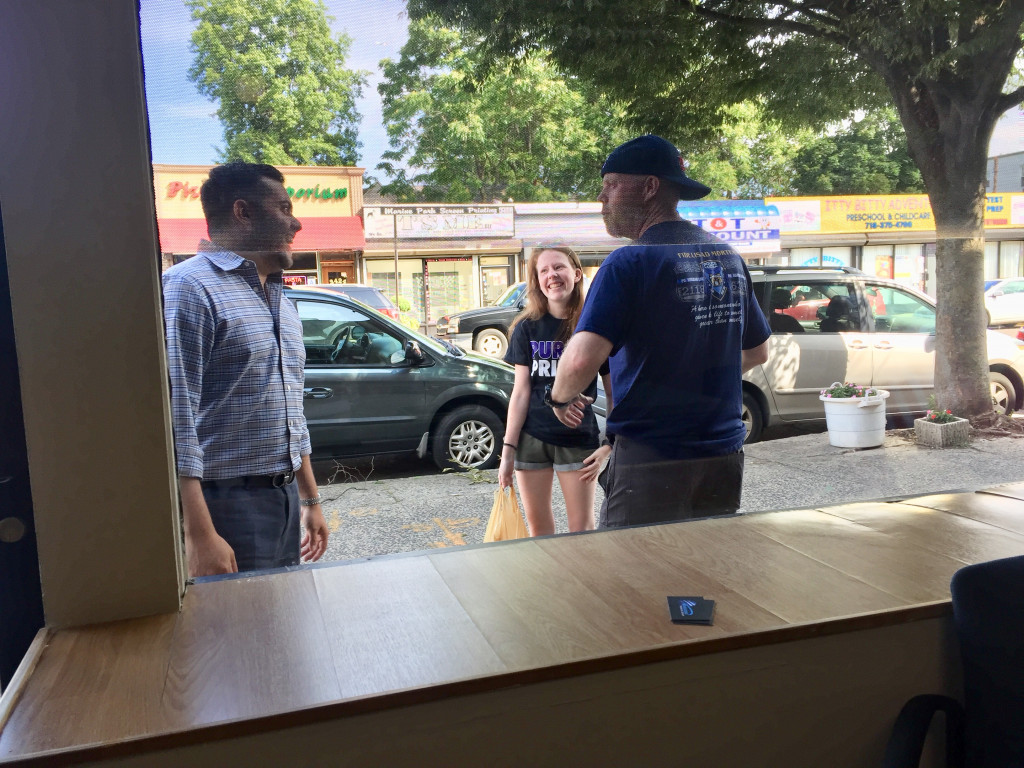 Because there is no building guard or front desk person, customers can stop by whenever they like. As if in a sitcom, a man walked into the store saying to the brothers, “Don’t be mad at me.” It was a customer, the owner of a local paint store. “It’s not completely my fault, but I broke the phone swiper on the job.”
Because there is no building guard or front desk person, customers can stop by whenever they like. As if in a sitcom, a man walked into the store saying to the brothers, “Don’t be mad at me.” It was a customer, the owner of a local paint store. “It’s not completely my fault, but I broke the phone swiper on the job.”
Reassuringly, John told him to come to his desk and he helped the customer with a replacement for a piece of credit card processing equipment.
The brothers have each been working in the small business financing industry independently for more than a decade. James established Horizon Financial Group by himself in 2009 while John was working for a different company in the credit card processing and MCA space. John joined James at Horizon Financial Group in September 2017.
John said he prefers co-leading Horizon Financial Group, itself a small business, to running a larger operation in Manhattan.
“Compared to somebody in the city with a huge rent and a huge payroll, I don’t need to do the same numbers he’s doing to end up making the same amount of money.”
John also noted that he doesn’t have to sit on a train for an hour and a half because he lives just six blocks away from the storefront office.
“A lot of people don’t like to say they’re a small company,” John said. “I couldn’t be happier that we’re a small company.”
Running a small business is familiar to the Celifarcos. Horizon Financial Group gets its name from Horizons Dance Center, a successful Brooklyn dance school founded by James and John’s mother. It has been in business for 46 years and is still going strong.
“The name is good luck,” James said.
James lives a short drive away in Rockaway with his wife and daughter. On running a small business like Horizon Financial Group, James said: “It’s also about quality of life. You don’t need to work 7 to 7. I can be on the beach with my daughter. It’s really a different approach.”





























